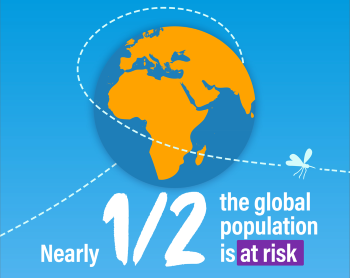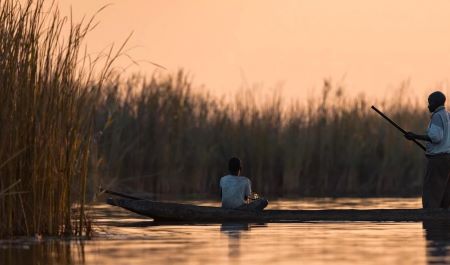Climate Action Network International has issued a statement calling for an immediate ceasefire in Israel and Gaza.
"Climate Action Network joins those who are rallying across the world in solidarity with Palestinian, Israeli, and all families who have lost loved ones in this latest conflict. We stand with those who grieve and fear for their loved ones, and join the call for peace and safety, where the rights of all are respected without distinction. ... We join the calls for an immediate ceasefire, respect for international humanitarian and human rights law, the provision of humanitarian access and support...."
You can read the full statement here.
Update -- October 31, 2023 -- Climate Action Network Canada (CAN-Rac) has added their voice. You can read the Canadian statment here.
GRAN is a member of both these organizations. We support the call for a ceasefire, the protection of human rights, and respect for international humanitarian law.
The International Committee of the Red Cross (ICRC) helps people around the world affected by armed conflict and other violence, doing everything it can to protect their lives and dignity and to relieve their suffering, often with its Red Cross and Red Crescent partners. The organization also seeks to prevent hardship by promoting and strengthening humanitarian law and championing universal humanitarian principles. To understand what International Humanitarian Law has to say about food security, starvation, and the prevention of hunger and famine in situations of armed conflict, read this article prepared by the ICRC.
World Food Day takes place each year on October 16th. This annual event is about raising worldwide awareness of hunger, and promoting action for the future of food, people, and the planet.
This year, World Food Day shines a spotlight on water as the foundation for life and food. The campaign aims to raise awareness about the importance of managing water wisely, as the availability of this precious resource is threatened by rapid population growth, urbanization, economic development, and climate change.
Today, 2.4 billion people live in water-stressed countries. Many are smallholder farmers who already struggle to meet their daily needs, particularly women, Indigenous Peoples, migrants, and refugees. World Food Day 2023 looks at solutions to produce more food with less water, while ensuring that water is distributed equally, our aquatic food systems are protected, and nobody is left behind.
We all have a role to play. Governments, the private sector, academia, farmers, civil society, and individuals need to work together for a food and water secure world.
Click here for a 1-minute video from the Food and Agriculture Organization of the United Nations, celebrating World Food Day 2023 -- and here for eight actions you can take to save water.
"Ageing is a triumph of development. People are living longer because of better health care, nutrition, sanitation, education and economic well-being. Although an ageing world poses social and economic challenges, the right set of policies can equip individuals, families and societies to address these challenges and to reap the benefits. ... Older people are an asset, for their skills, talents, experiences, perspectives and resilience." -- United Nations Population Fund
Seventy-five years ago, the United Nations General Assembly adopted the landmark Universal Declaration of Human Rights, the first document articulating the fundamental human rights that are meant to be universally protected. This year, International Day of Older Persons highlights the importance of protecting these rights for older persons, as well as sharing and learning from intergenerational models for the protection of global human rights.
Click here to read the UN Secretary General’s message for International Day of Older Persons 2023.
Fully 30% of all food produced for human consumption is never eaten. Around 13% of food produced globally is lost during harvest, storage, or transport, while an estimated 17% is wasted in our households and in food service and retail.
The loss and waste of food can negatively impact food security and food availability, and contribute to increasing the cost of food. Food loss and waste also undermine the sustainability of our food systems. Producing uneaten food wastes a whole host of resources -- seeds, water, energy, land, fertilizer, hours of labour, financial capital -- and generates greenhouse gases at every stage, including when uneaten food decomposes in landfills. Taking action on this is critical in both building food security and fighting climate change.
Friday, September 29th is the International Day of Awareness of Food Loss and Waste. Mark this day by increasing your awareness of the issue and taking a look at what you can do to reduce food waste in your home and community.
Click here for 15 practical tips you can act on today.
“Unless we act now, the 2030 Agenda will become an epitaph for a world that might have been.” -- António Guterres Secretary-General, United Nations
The world is at the halfway point in progress towards the 2030 Sustainable Development Goals (SDGs) set in 2015. According to the recently released Global Sustainable Development Report 2023, the SDGs are far off track. Recent global crises have wiped out years of progress in a number of areas. Accelerated action is now needed to get back on track to reach the SDGs by 2030.
To that end, the 2023 Sustainable Development Goals Summit will take place on September 18 and 19 during the UN General Assembly high-level week in New York. At the Summit, world leaders will review the state of the SDGs implementation and forge a rescue plan to mobilize and accelerate progress. This is an opportunity for the world’s nations to reignite a sense of hope and enthusiasm for the 2030 Agenda and recommitment to its goals.
The Sustainable Development Goals Report 2023: Special Edition provides a powerful call to action, highlighting the existing gaps and urging the world to redouble its efforts. The report also emphasizes the potential for success through strong political will and the utilization of available technologies, resources, and knowledge. For a short and easy-to-follow overview of the main findings in the report, watch this 6-minute animated video.
It is possible to meet the Sustainable Development Goals, states a leading group of economic thinkers, scientists and changemakers. The SDGs for All report, written for policy makers attending the SDG Summit, examines SDG progress in the light of five major turnarounds related to poverty, inequality, empowerment, food and energy, and offers solutions to meet the targets.
Women in Sierra Leone are breaking barriers to build a new maternity centre. Sixty percent of the construction workers on site are women.
“It is for us, the women who will give birth here. That’s why we are putting in effort to build the hospital,” says Hawa Baryoh, 21, who works in quality control. “That is why you see plenty of women here,” she says proudly.
Click here to read more about this project and the difference it will make in maternal and neonatal health in Sierra Leone.
Sandy Milakovic, GRAN Regional Leader for Ontario South/Southwest, was recently interviewed by Mississauga News about her volunteer work. Sandy speaks about her involvement with GRAN and with the Stephen Lewis Foundation Grandmothers-to-Grandmothers group Oomama. In the interview, Sandy speaks to the current global hunger crisis and GRAN's Right to Food campaign. Click here to read more.
“Biodiversity is the critical foundation of our well-being and the health of our planet. The new Global Biodiversity Framework Fund will play a key role in addressing biodiversity loss. It will address it in developing countries, where the impacts of nature loss are highest; it will address it in a gender-responsive manner, including through cross-sectoral partnerships; it will address it in collaboration with Indigenous Peoples, the original guardians of the lands and seas. Canada is making a significant contribution to this new fund and continuing to show our support for the GEF’s eight replenishment to ensure the protection of our planet’s biodiversity for generations to come.” -- Ahmed Hussen, Minister of International Development
Click here for more information about this initiative.
Founded in 2019 to fight hunger in the Greater Toronto Area, Be One to Give (B12Give) rescues surplus food from restaurants and businesses and redistributes it to local shelters and charities. Since its inception, B12Give has diverted approximately 15,000 kilograms of food waste — enough to feed 25,000 people. Click here to read more about B12Give and its mission to redistribute 100% of avoidable food waste across Canada by 2030.
Pages


